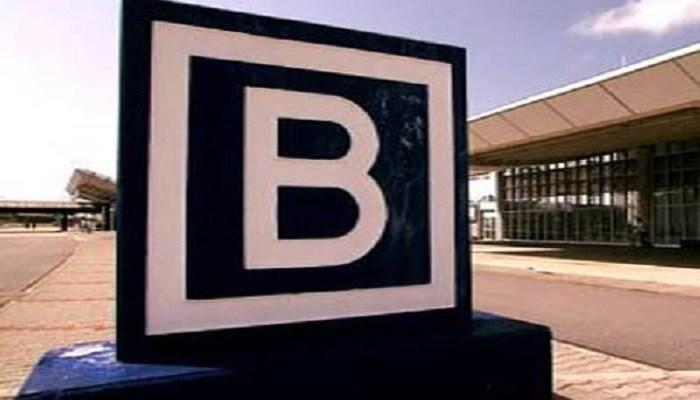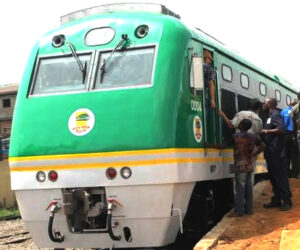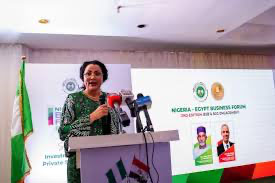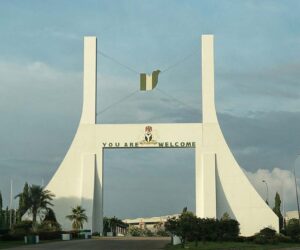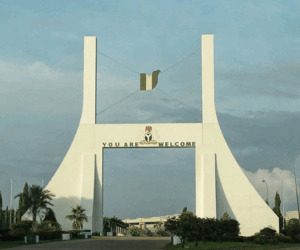1
After more than a decade of silence, bulldozers are returning to the vast expanse of the Abuja Centenary City.
Julius Berger Nigeria Plc has formally resumed work on the project, 11 years after it was first launched as Nigeria’s most ambitious urban development scheme.
The resumption follows the signing of a contract for Phase One of the project’s primary infrastructure, marking a fresh start for what had long stood as a symbol of unrealized potential.
The Abuja Centenary City was first unveiled in 2014 as a showcase of Nigeria’s ambition for the new century.
The master plan envisioned a modern lifestyle hub complete with five-star hotels, luxury residences, a commerce and convention centre, the Mall of Africa, and a championship golf course.
Modeled in part on international smart city developments, the project was conceived not just as a real estate venture but as a statement of Nigeria’s place in the global economy.
Years of policy changes, shifting economic realities and investor hesitancy stalled progress, leaving behind a site that many thought would never come to life.
The decision to bring Julius Berger back on board has therefore, been described by stakeholders as both a symbolic and practical step toward restoring investor confidence.
At the contract signing ceremony, Managing Director of Abuja Centenary City, Dr. Odenigwe Ike Michaels, said the choice of Julius Berger was deliberate.
“Julius Berger’s reputation for delivering quality on landmark projects nationwide speaks volumes about its capacity. I challenge the company to surpass its records in project delivery, as today’s contract signing marks the official resumption of construction in the city after more than a decade,” he declared.
On his part, Julius Berger’s Managing Director, Dr. Peer Lubasch, framed the project not simply as an engineering assignment, but as a catalyst for Abuja’s future.
He described the newly awarded 4.31-kilometre dual carriageway as “not just a road, but the first major artery of this great city,” laying the foundation for subsequent development phases.
“Centenary City is more than an urban development. It is an investment in the future of Abuja and the Federal Capital Territory, a catalyst for jobs, business opportunities and international investment,” he said.
The stakes are high. Abuja Centenary City sits within a Free Zone, which offers investors significant incentives, including tax relief and regulatory flexibility.
For international corporations and regional investors, this makes the project a unique entry point into Nigeria’s $400 billion economy.
If completed to plan, it will not only change Abuja’s skyline but also create a magnet for multinational headquarters, diplomatic engagements, global conferences and large-scale commercial activity.
The project also carries heavy diplomatic weight.
By combining world-class convention facilities, hotels and cultural attractions, Centenary City could position Abuja as a natural host for international summits and exhibitions, reinforcing its status as Africa’s diplomatic capital.
At the same time, the economic ripple effect is expected to generate thousands of jobs, stimulate local supply chains and open opportunities for small and medium-sized enterprises within and around the FCT.
Still, the long delay is a cautionary tale. It underlines the structural challenges that confront mega-projects in Nigeria— ranging from inconsistent policy environments to financing bottlenecks.
For this reason, both the promoters and contractors are under pressure to prove that the project can finally move beyond fanfare to measurable delivery. Julius Berger’s involvement provides a measure of assurance.
The company’s six decades of experience and track record of reliability on landmark projects from highways to airports have earned it credibility that few can match.
For investors watching Nigeria’s policy reforms and searching for signals of stability, the revival of Centenary City may serve as an important marker.
It suggests that large-scale projects, however delayed, remain viable when backed by credible execution partners.
Early entrants into the city’s ecosystem stand to gain first-mover advantage in retail, hospitality, finance and technology services, while residents will be drawn to the promise of a world-class lifestyle community.
Abuja Centenary City is therefore not just an urban renewal effort. It is an economic and diplomatic play, designed to attract capital, project confidence and position Abuja as one of Africa’s most important cities.
The resumption of work by Julius Berger marks a decisive moment. If momentum is sustained, the once-stalled $18 billion dream could yet become one of the continent’s most transformative urban success stories.

